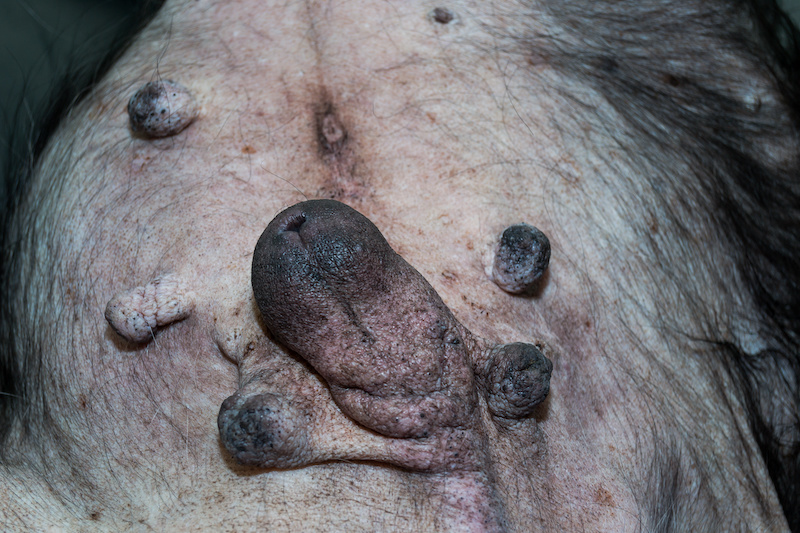 Hyperadrenocorticism, commonly known as Cushing’s Disease, is a condition commonly found in middle-aged and senior dogs. This condition occurs when the adrenal glands located above the kidneys produce excessive amounts of cortisol, the stress hormone. This leads to a variety of clinical signs, which can vary greatly from one dog to another.
Hyperadrenocorticism, commonly known as Cushing’s Disease, is a condition commonly found in middle-aged and senior dogs. This condition occurs when the adrenal glands located above the kidneys produce excessive amounts of cortisol, the stress hormone. This leads to a variety of clinical signs, which can vary greatly from one dog to another.
Symptoms of Cushing's Disease
The most common signs of Cushing's disease in dogs include an increased appetite, excessive thirst and urination, lethargy, a pot-bellied appearance, thinning of the skin, and the development of blackheads on the skin. Dogs with Cushing’s disease also tend to have weakened immune systems, which can lead to frequent infections and a reduced ability to heal quickly.
Causes of Cushing's disease
Cushing's disease can be caused by a variety of factors, the most common of which is a tumor on the pituitary gland. This tumor, known as a pituitary adenoma, spurs the release of excessive cortisol. Other causes of Cushing's disease are tumors in the adrenal gland, which produce cortisol. This condition can also be caused by overuse of steroids to treat various medical conditions, which can lead to a condition known as iatrogenic Cushing's syndrome.
Diagnosis and Treatment of Cushing's Disease
Diagnosis of Cushing's disease in dogs requires a combination of multiple tests, including a urinalysis, blood tests, and an ACTH stimulation test. In cases where adrenal tumors are present, treatment of this condition can involve surgical removal of the tumor, chemotherapy, or radiation. However, most cases of Cushing's disease are treated with medication.
Medications used to treat Cushing's disease in dogs include mitotane and trilostane, which work by reducing the production of cortisol. These medications typically require routine monitoring by a veterinarian to ensure they are working effectively, and the dog's cortisol levels remain within normal ranges. Long-term treatment is often needed to manage the condition, frequently throughout the dog's lifetime.
Conclusion
If you suspect your dog is suffering from Cushing's disease, give us a call at the Animal Hospital of Statesville. Early detection and treatment are essential to prevent further complications from arising. Although there's no cure for Cushing's disease, it is very manageable. With proper care, many dogs with this disease continue to live happy and healthy lives.

